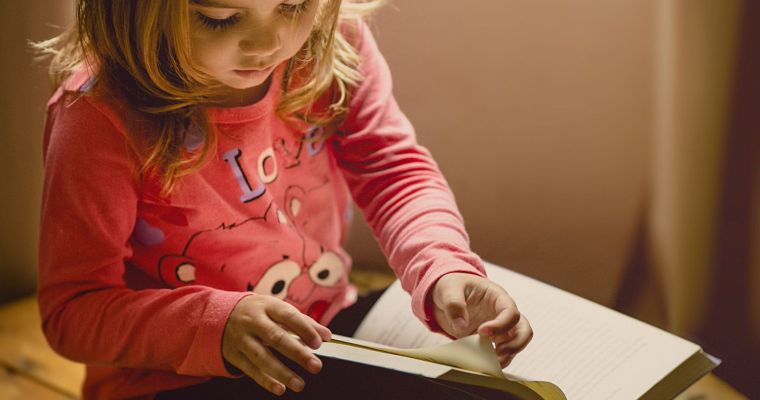
“If you cannot write well, you cannot think well, and if you cannot think well, others will do your thinking for you.” -George Orwell
“Once you learn to read, you will be forever free.” – Frederick Douglass

Our values and curriculum at Treehouse Learning apply the science of human development, cognitive psychology, interpersonal neurobiology, educational pedagogy, and best practices in Early Childhood Education to support the optimal development of the whole child. Our mission to help the world thrive, and everything in it, extends beyond simply academic success as it is currently measured and assessed by our school systems. We are deeply committed to preparing and ensuring that children have the tools to thrive in school and most importantly, in life on planet earth!
The science behind learning to read is absolutely fascinating and complex, and while it has been around for decades, it has not been uniformly incorporated into educational practices of how we teach reading. While human beings are wired to acquire spoken language, the process of learning to read and write requires a complex process of brain-mapping skills to connect written symbols with sounds, as well as connecting written words to their meaning in order to build understanding, which is called orthographic mapping.
The process of learning to read is a physiological process involving all parts of the brain, including our right and left hemispheres, as well as visual and auditory processes. At Treehouse Learning, pre-literacy skills are embedded in every classroom throughout the day through stories, imaginative play, engagement with printed materials, Brain Gyms, music, language, and other movements/body-based learning experiences to intentionally integrate and activate all parts of the brain, and support the neural pathways that are used in reading and all academics.
Learning to read, and becoming a skilled reader, requires both decoding skills to read and understand printed words (i.e. phonics skills to connect written symbols to spoken sounds), as well as the language base and context to make meaning out of what is read. At the preschool level, playful experiences involving movement, music, and a language-rich environment incorporating stories, quality linguistic exchanges, rhyming patterns, and opportunities for child-led imaginative play all support current and future language and literacy development. A play-based approach intentionally supports and develops both “ingredients” necessary for development into skilled readers.
The graphic below, called the Simple View of reading, is a useful framework for understanding the equation behind the research and science of reading involving both language comprehension and word recognition. The process of learning to read is built on the interplay between brain development and experience, and it is critical to remember that brains are shaped, cumulatively, over time. While it is useful to have a map of where children are headed on the journey to becoming lifelong readers and learners, we must also remember that development can’t be rushed, and a 3-year-old is not simply a smaller 7-year-old!
Here are some relationship-building activities that support positive brain development and cognitive skills
- Support a language-rich environment to create a context of meaning
- Use back-and-forth exchanges to help children understanding the meaning of words, including repetition of the same word in a variety of contexts
- Read with your child. You don’t have to finish the entire book or read every word!
- Talk about what’s happening in the book, notice what they notice, and give language, or name to the images (symbols) they point to
- Ask curiosity questions- who, what, where, why, how? The key is open-ended questions to nudge an engaged and connected child into expansive thought processes
- Here are 2 podcast resources for reading with children:
- 003: Did you miss the boat on teaching your toddler how to read? (Me too!) | Your Parenting Mojo
- 048: How to read with your child | Your Parenting Mojo
- Sing with your children.
- Make up rhymes, or have them guess the rhyming word, and create other opportunities to hear and play with the sounds of words (phenomic awareness)
- Notice patterns, and make patterns with your bodies, voices, or words.
- Involve your children in cooking dinner or preparing meals. Let them scrub potatoes, peel stickers off of apples, or wash dishes
- Involve your children in counting plates or setting the table for meals.
- Write down their words on paper to communicate that they are born writers and that what they say is important and valuable.
- Let them write or scribble their own to-do lists on scrap paper.
- Give your child age-appropriate responsibilities around the house (sort silverware, carry laundry or groceries, fold napkins, feed the dog).
- Play outside. Ride bikes or take walks together
- Look for bugs, birds
- Collect sticks and splash in puddles.
- Look at the stars at night and notice the position of the moon
- Count out oranges at the grocery store.
- Engage in Big Juicy Conversations
